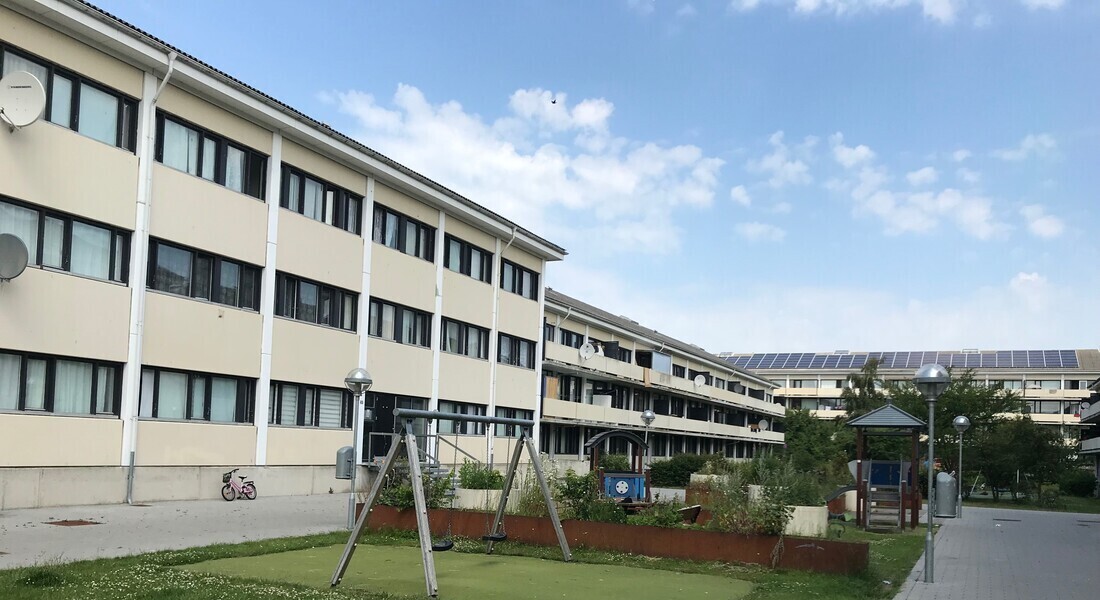‘We feel like one big village’: A study on social relations among social housing residents in Denmark
With her ongoing PhD, Abirami Srivarathan is researching the social relations and neighbourhood environment among middle-aged and older residents in a social housing area in Denmark. The research shows that even though residents in social housing meet adversity, they still have a positive perception of their neighbourhood environment and strong social relations locally. Additionally, it shows that these relations and perceptions can be enhanced further with a community-based health intervention.

In social housing areas in Denmark, there seems to be strong social relations and neighbourhood environments. These factors can be strengthened with a community-based health intervention, in which the residents participate because of the social aspect. The wellbeing of the residents is however challenged by the relocation and housing demolitions.
Abirami Srivarathan elaborates on her four main findings:
“The findings point toward four overarching conclusions. Firstly, despite their exposure to social adversities, residents in social housing areas expressed strong place-based social relations and positive perceptions of neighbourhood environment that seemed to be enhanced through community-based health promotion interventions. Secondly, when studying social relations among residents, the researcher needs to be aware of their own positioning. Thirdly, face-to-face interaction with family, friends and neighbours is associated with neighbourhood dissatisfaction and unsafety among residents. Finally, relocation of kinship relations, friends and neighbours and housing demolition appeared to cause loss of place-based social relations, which affected the wellbeing of residents.”
When asked what the aim was with her thesis, Abirami Srivarathan explains:
“This thesis aims to explore social relations and neighbourhood environment among middle-aged and older residents in a social housing area selected for large-scale structural changes in Denmark. Population registry data, survey data, field notes and interview transcripts were utilized to follow residents over different time periods through an application of a mixed-methods research design.”
The people who live in social housing areas are in some aspects considered as a vulnerable population but possess strong place-based social relations and a strong commitment to the local community.
“Social housing residents have been identified as a vulnerable population due to their exposure to social adversities, including segregation, violence, unemployment, poverty, and prolonged periods of residential instability, manifesting itself in social disintegration, residential dissatisfaction, unsafety, and poor health. Nevertheless, social housing residents are also known to possess strong place-based social relations and commitment to the local community, which emphasizes and underlines the diverse nature of social housing residents.” says Abirami Srivarathan
When asked what the results will mean for social housing research in the future, Abirami Srivarathan highlights that: “the analyses conducted expand our understanding of the importance of neighbourhood context in shaping social relations and perceptions of neighbourhood environment among residents in social housing areas”.
In addition, Abirami Srivarathan explains what the study will mean for future research in the health and social housing area:
“The conclusions drawn in this thesis merit further research, with special attention towards potential mechanisms and pathways explaining the associations identified. Longitudinal analysis with larger population cohorts can help clarify regional differences in social relations and perceptions of neighbourhood environment including the consequences of large-scale structural changes on place-based social relations among social housing residents.”
During the research, Abirami Srivarathan found that she had to be aware of her own position, underlining how aspects and characteristics related to country of origin and social upbringing of the researcher influenced the relationship between the latter and residents during ethnographic fieldwork.
- Srivarathan A, Lund R, Christensen U, Kristiansen M. Social Relations, Community Engagement and Potentials: A Qualitative Study Exploring Resident Engagement in a Community-Based Health Promotion Intervention in a Deprived Social Housing Area. International Journal of Environmental Research and Public Health. 2020;17(7). 2341. https://doi.org/10.3390/ijerph17072341
-
Srivarathan A. You Are Kind of Like One of Us: Exploring Researcher Positioning in Studying Community-Based Health Promotion Interventions Among Social Housing Residents of Danish, Turkish and Pakistani Origin. Qualitative Health Research. 2022;32(4). 599-608. https://doi.org/10.1177/10497323211067523

